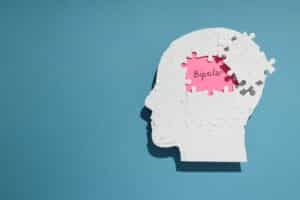Technology has a hand in almost everything you do, including communicating with friends and family or shopping online. In today’s digital age, it is hard to do anything without the internet, social media, or the assistance of an electronic device. There are potential negative impacts on mental health from the overuse of such things. Yet, in moderation and in the proper context, they can benefit your mental wellness.
Mental Wellness Apps
As smartphones began to dominate the cell phone market, the business of developing applications surged. The number of these available “apps” are extensive and diverse. If you can think of it, there almost certainly “is an app for that.” This includes apps that aim to enhance your mental wellness.
Meditation and Mindfulness
There are a wide variety of apps explicitly catering to improving mental health. Many of these focus on helping you with meditation and mindfulness. Both of these activities have proven beneficial to mental health. Yet, in a fast-paced society where rapid data shortens your attention span, it can be challenging to sit your phone down and focus on these exercises.
Instead of trying to change this, make it work for you. For many people, it is difficult to focus on the world around them because they are focused on their phones, typically out of habit. Phones are like a stimulant, similar to how television stimulates and maintains the focus of someone with ADHD. By using a meditation or mindfulness app, you are more likely to participate in such activities.
Exercise
Physical activity can be beneficial to your overall health, including your mental health. Not having expensive equipment or a gym membership can prevent many people from working out. While there are plenty of exercises you can do without those resources, you may not be aware of them. Not only can you find these online, but numerous workout apps take you through step-by-step instructions on exercise routines you can do from home with minimal to no equipment.
Music and Audiobooks
Listening to music or audiobooks can be therapeutic. They can help relax you, easing depression or anxiety. Soothing music or sleeps sounds like rain can help improve your sleep. Upbeat music or engaging audiobooks can motivate or occupy your mind while working out. Happy music and books you enjoy can release endorphins similar to the way exercise does, improving your overall mood. Even sad songs or stories can benefit you during difficult times or grieving.
Use Trackers
Many devices have incorporated apps that allow you to track and even set limits to your tech use. This can be helpful if excessive phone use interferes with other aspects of your life. Screen time trackers will monitor how long you’ve been using your electronic devices each day and alert you if you go past a set limit. Many apps will also break down this use into categories, such as how much time you spend on social media. This can create an awareness you might not have otherwise had, allowing you to make changes as needed.
Mental Wellness Devices
While apps are great, they would be nothing without the devices used to run them. Beyond smartphones, there is a variety of tech with functions that can benefit your mental health.
Fitness Trackers
Physical wellness has been well-established to benefit mental health. Yet, motivating yourself to exercise can be a more significant challenge than the actual workout. Fitness trackers, often worn over the wrist as a bracelet or watch, can help motivate you to exercise and keep track of your progress. Having something on your wrist reminding you to “get your steps in” or meet your workout goals can be helpful. Many of these devices offer incentives beyond self-improvement, like unlocking achievements for consistency and meeting milestones.
E-Readers
Electronic readers are an excellent tool for the bibliophile who finds self-care through curling up with a good book. Compared to electronic tablet devices, e-reader devices tend to have much less functionality regarding social media, apps, and web browsing. This helps limit those potentially unhealthy distractions.
Mental Wellness Online Resources
The internet has brought unlimited information to anyone with a cell phone or computer. As with all things in life, there are pros and cons to a world connected through cyberspace. Fortunately, some of the pros of the internet provide notable benefits in the mental health space.
Teletherapy
There are plenty of barriers to receiving therapy, including cost, time, resource availability, and stigma. Even if you can find a therapist with openings and afford the cost, finding a time that works for your schedule and physically getting to the appointment may be problematic. The option of seeing a therapist over voice or video call via teletherapy has provided a needed resource that is more easily accessible.
Support Groups
Family and friends can be helpful to lean on during difficult times. However, they usually can’t provide the same support you can find in others with the same mental health condition. Having support groups specific to your situation can be tremendously helpful, especially when challenges or questions arise. Finding this type of support group may be difficult, depending on where you live. Many of these support groups are posted online and meet over video conference or phone call, allowing you to attend from the comfort of your home.
Hotlines for Mental Wellness
You never fully know the importance of these types of resources until you need them. A prime example includes the various Suicide and Crisis Prevention lines available. Regardless of which mental health condition you have or what symptoms you are experiencing, there is almost always a number you can call. Having access to the internet means easy access to this information.
Living in the digital age, the use of technology is almost unavoidable. Like anything, excessive or inappropriate use of technology can be harmful to your mental wellness. However, if used correctly and in moderation, there are numerous potential benefits to having access to these resources. At Southern California Sunrise Recovery Center, we aim to stay informed about potential therapeutic resources beyond just medication and traditional psychotherapy. We want our clients to be aware of all the potential helpful resources available to them. If you or a loved one think technology could improve your mental wellness, we want to help. To learn more about these resources, call us at (714) 942-4143.







